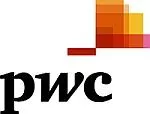As at the commencement of the African Continental Free Trade Agreement (AfCFTA) on 30 May 2019, 52 African countries have signed the agreement while 3 countries – Republic of Benin, Eritrea and Nigeria are yet to sign. The key objective of AfCFTA is to boost intra-African trade through progressive elimination of tariffs and non-tariff barriers to trade in goods and liberalisation of trade in services. The Agreement will also involve cooperation on investment, intellectual property rights and competition policy.
Some stakeholders have raised concerns about the risk of transshipment and dumping of goods which may hurt domestic businesses especially infant industries. However, the AfCFTA Treaty already has provisions to address these concerns. The real issues are not with the AfCFTA Treaty itself but potentially its implementation. The best way to address the identified challenges is to get involved. If you are not at the table, then you may be on the menu. Like Nelson Mandela once said, I hope that our choice on this matter reflects our hopes and not our fears.
Here are my proposed next steps and key priorities for Nigeria:
- Review and harmonise trade policies
- Identify areas of competitive advantage
- Build institutional capacity
- Address non-tariff barriers
- Develop safeguards
- Engage key stakeholders and build consensus
- Build robust infrastructure (long term)
The content of this article is intended to provide a general guide to the subject matter. Specialist advice should be sought about your specific circumstances.


